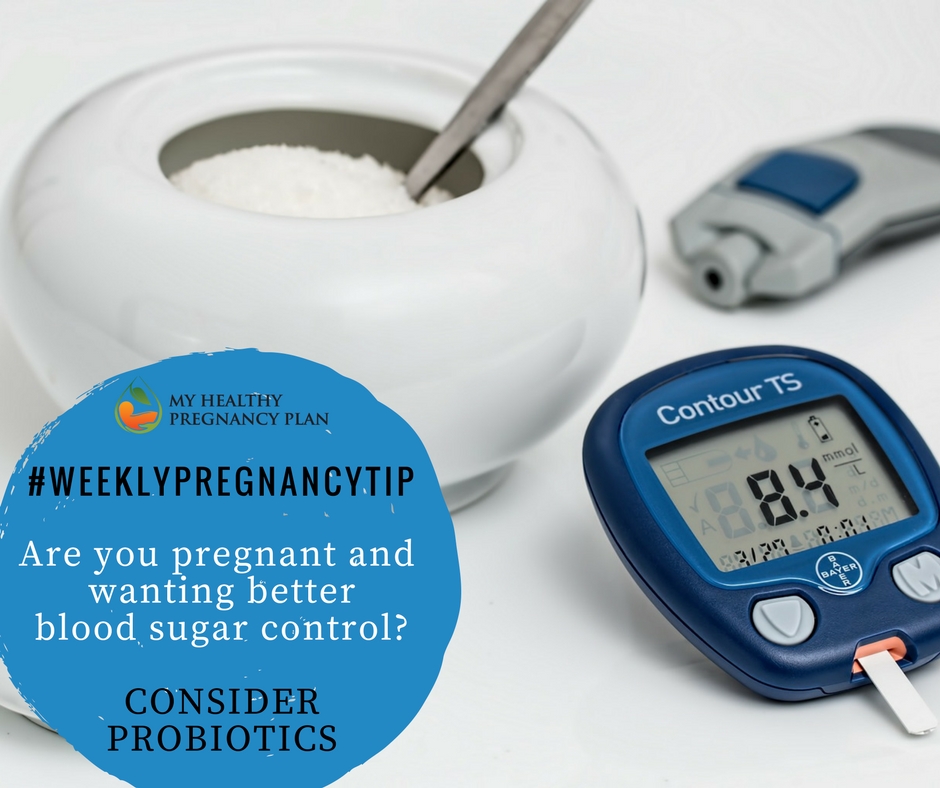
Probiotics are live bacteria that benefit their hosts (that is, us!) in seemingly countless ways. Throughout pregnancy the gut microbiome undergoes significant changes, and probiotic supplementation during pregnancy has been shown to lower rates of infant eczema and allergies, pre-term birth, and rates of urinary tract and Group B Strep infections (see this weekly tip for more info on this). Quite the tiny powerhouses!
A recent study has given us one more reason to get excited about probiotic supplementation in pregnancy: decreasing insulin resistance in pregnant women diagnosed with gestational diabetes (a type of diabetes that first starts during pregnancy).
Just 6–8 weeks of probiotic supplementation resulted in a significant reduction in insulin resistance in pregnant women with gestational diabetes and previous studies have also shown a potential decrease in the risk of developing gestational diabetes.
There is obviously more to the gestational diabetes story than probiotic supplementation, including nutrient supplementation, diet and lifestyle factors (see this previous tip on how sleep affects blood sugar control as well), and it is for this reason that I devote an entire module to the topic in my online pregnancy coaching program.
However, this study highlights once again that we should pay attention to healthy gut function and things as minute as the micro-organisms that live within our bodies, to have the healthiest pregnancy possible.
I hope you have found this helpful, and do let me know if you have any questions!
If you are hungry for more evidence-based information in your pregnancy, sign up for my free webinar: 7 Pregnancy Myths Debunked – and get the information you need to have a healthy pregnancy and a thriving baby.
And if you are a care-provider looking for evidence-based resources for your pregnant patients, please get in touch with us at support@myhealthypregnancyplan.com.
In health,
Dr Jocelyn Land-Murphy, ND
Terra Life
Disclaimer: The information and content provided is for general educational and informational purposes only and is not professional medical advice, nor is it intended to be a substitute therefore. Please consult the Disclaimer and Terms of Use for full details.
References:
Hanson, L., et al. (2014). Feasability of Oral Prenatal Probiotics Against Maternal Group B Streptococcus Vaginal and Rectal Colonization. Journal of Obstetric, Genecologic & Neonatal Nursing, 43(2): 294-304.
Taylor, B. et al. (2017). Effect of Probiotics on Metabolic Outcomes in Pregnant Women with Gestational Diabetes: A Systematic Review and Meta-Analysis of Randomized Controlled Trials. Nutrients 9(5): 461.
Usui, R. et al. (2002). Vaginal lactobacilli and preterm birth. Journal of Perinatal Medicine, 30(6): 458-466.
Zuccotti G. et al. (2015). Probiotics for prevention of atopic diseases in infants: systematic review and meta-analysis1. European Journal of Allergy and Clinical Immunology, 70(11): 1356-13671.





